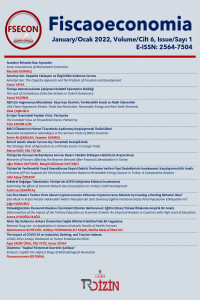Türkiye Demokrasisinde Çekişmeci Kolektif Eylemlerin Eksikliği
The Lack of Contentious Collective Actions in Turkish Democracy
Author(s): Yavuz YıldırımSubject(s): Civil Society, Government/Political systems, Politics and society, Crowd Psychology: Mass phenomena and political interactions
Published by: Ahmet Arif Eren
Keywords: Contentious Politics; Collective Actions; Social Movements; Grassroot Democracy;
Summary/Abstract: It can be said that one of the most important defects in the problematic history of democracy in Turkey is the inability of institutional politics to be guided by the collective actions of social movements. The study focuses on the question that “does Turkey have substantial civil opposition and effective social movements sustained in it?” The link between the lack of significant power of social movements and Turkish democracy was analyzed around that question. As well as the socio-economic network established by the current hegemony, the comprehensive networks that popular forces could not establish have been effective on the democratic system. After revealing the connections between the movements and the democratic system in general terms in the study, it is explained the difficulties in transforming democracy through movements because of the lack of dynamic contentious actors in Turkey. Regular challenges, claims, grievances and demands from the grassroots against public authorities are effective elements in the gradual transition from monarchies to republics and then democracies. The fact that collective actions, in which individual demands are transformed, are often trapped within the hierarchical patterns of established politics is one of the indicators of the remarkable lack of a dynamic structure in Turkey’s representative government. Social opposition needs to develop alternative mechanisms and processes to improve democracy.
Journal: Fiscaoeconomia
- Issue Year: 6/2022
- Issue No: 1
- Page Range: 40-58
- Page Count: 19
- Language: Turkish

